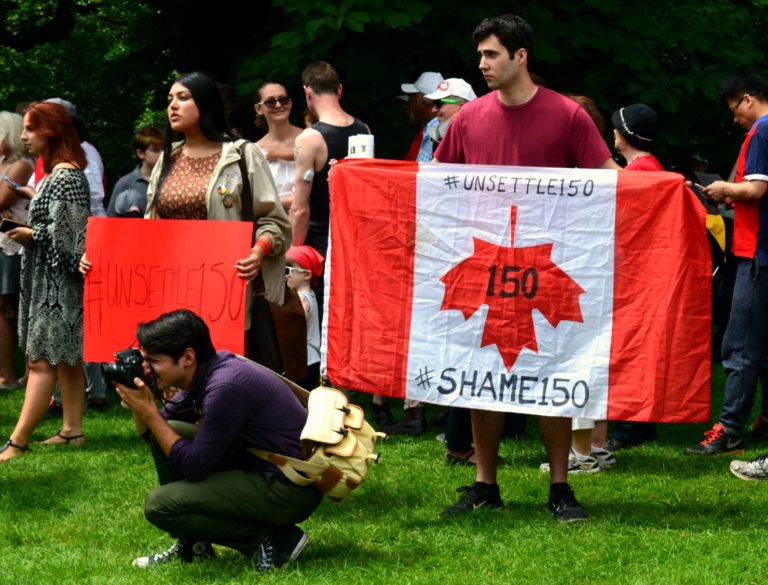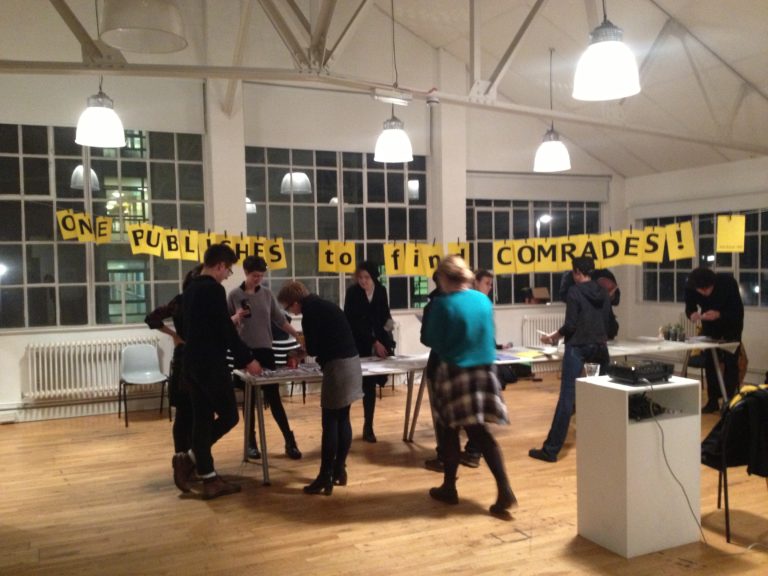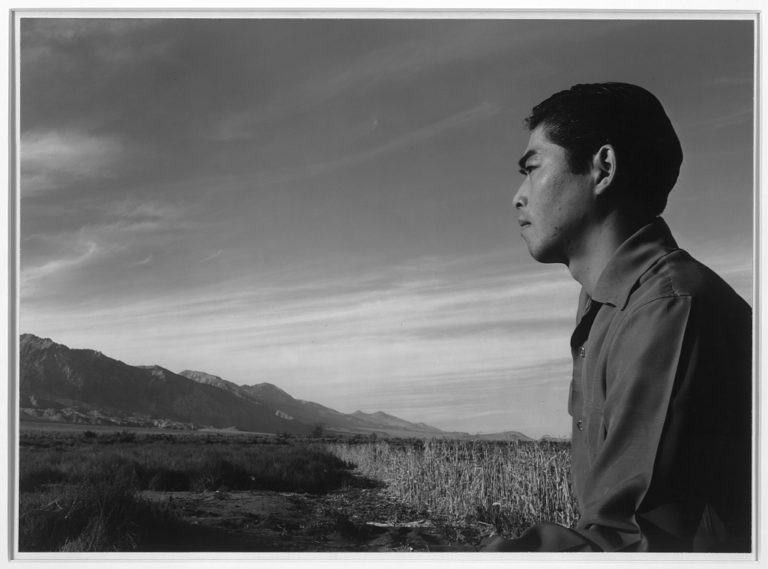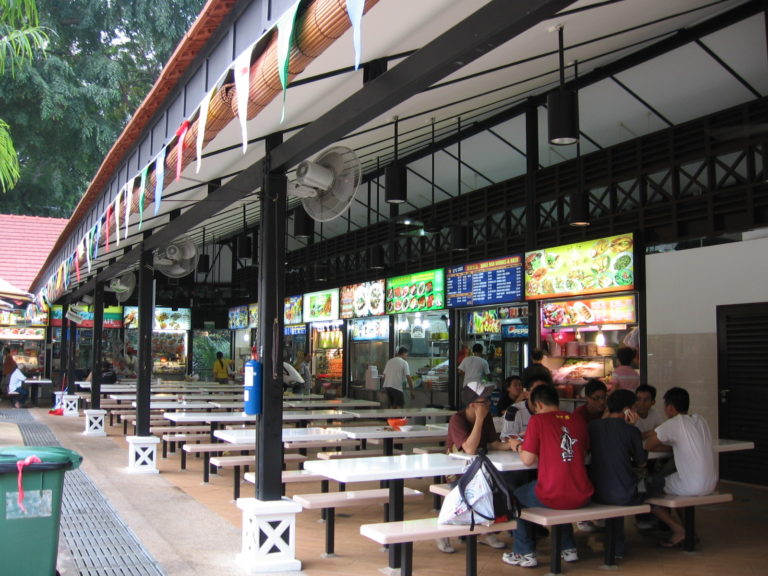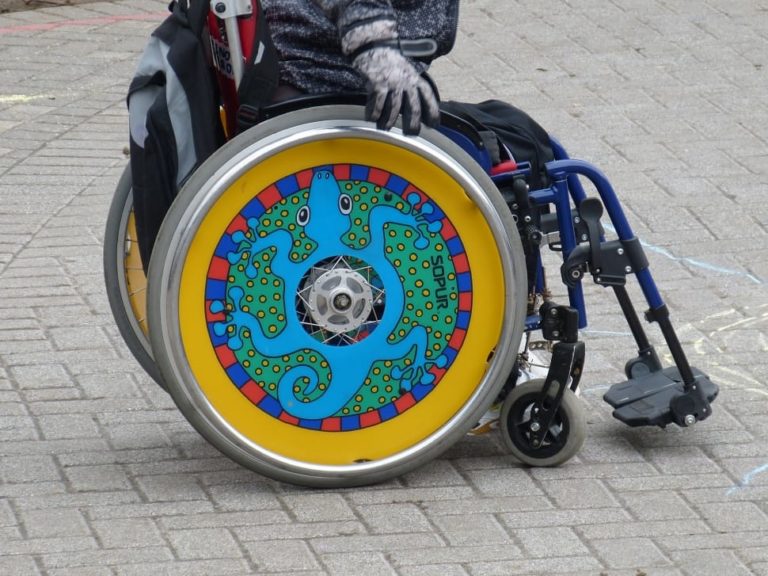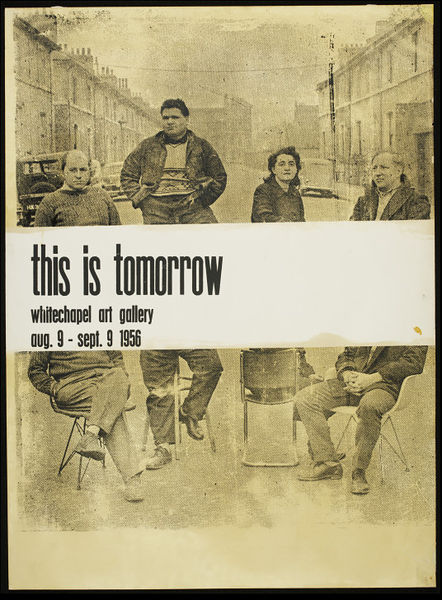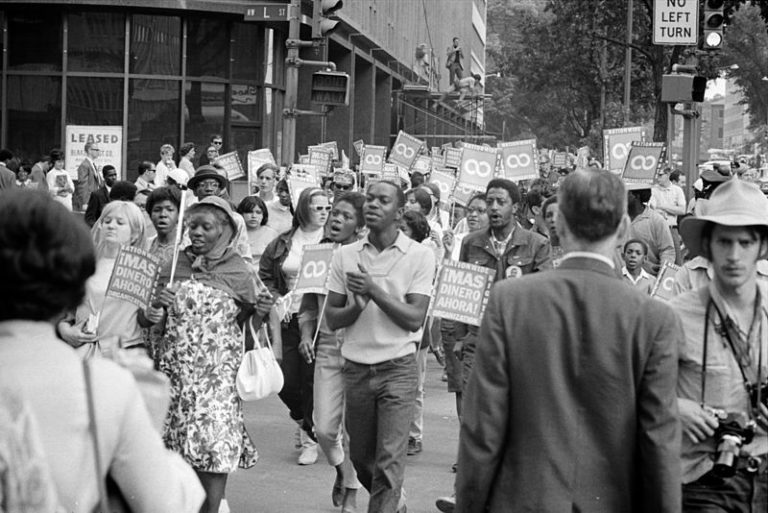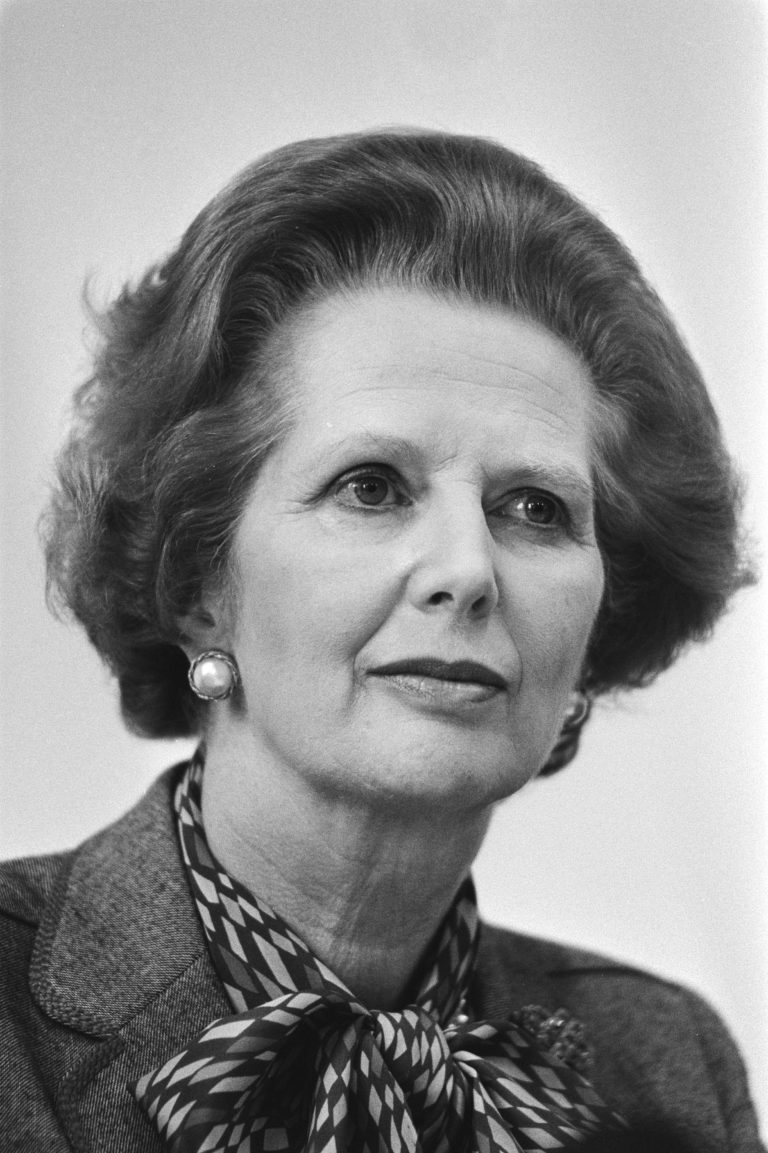This issue features six full length articles, the final section in the universal basic income forum that has spanned three issues, the expansion of our Years in Cultural Studies project, and a number of book reviews.
Issue 8.2 (Fall 2019)
Webs of Relationships: Pedagogies of Citizenship and Modalities of Settlement for “Muslims” in Canada
Immigrants to Canada must pass a set of pedagogical gate-keeping exercises that compel settler socio-spatial relations to allow them to come into the fort of the nation-state as neoliberal multicultural subjects. Bringing together Sunera Thobani’s concept of exalting the white subject and Sherene Razack’s theorizations on Muslim eviction from Western politics, I argue that those racialized as Muslim are positioned as perpetual immigrants, compelled to exalt whiteness or be evicted. Caught between an unresolved tension of settler spatial relations to nation and Indigenous spatial relations to Land, I examine what decolonial subject positions are available for “Muslims” using the Canadian citizenship study guide and oath as focal points. I foreground an Indigenous analytic and my Arab lived experience to do a contrapuntal reading of the social construction of Canada in the study guide and trace how the relationships to nation espoused in the manual are incommensurable with the relationships to Land fundamental to Indigenous worldviews. Throughout the paper, I draw on the experience of Masuma Khan, who was censured by her university and the public when she advocated that Canada 150 be remembered as Indigenous genocide rather than a celebration of nationhood, to unpack how racialization colonizes and colonization racializes.
Publishing to Find Comrades: Constructions of Temporality and Solidarity in Autonomous Print Cultures
Open source publishing, in all its versions and mutations, is an area of research and media practice that has become much more popular recently. It is precisely because of this the questions it raises for cultural production are today all the more pressing. How does a form of media production where the good produced is given away to people sustain itself? How can it produce livelihoods for its associated “below the line” editorial workers, as well all the other associated forms of cultural labor undertaken in the production chain, from distribution to retail? This essay considers some of these questions, not from a general perspective, but rather from how they filter through and affect the nature of autonomous print cultures. For these print projects questions about labor, conditions and the sustainability of the project are all the more pressing because of how they relate to and are embedded within the goal of the social movement organizing that they emerge from.
Viewing Japanese Incarceration from Above & Below: Imperial Landscape and Racial Liberalism in Ansel Adams’s Born Free and Equal
This article examines the role of landscape in the visual and narrative representation of Japanese incarceration in Ansel Adams’s Born Free and Equal. Specifically, by analyzing the way it both draws upon and reworks what art historian Albert Boime calls the magisterial and reverential gaze, I argue that Born Free revises the thematic and visual trope of US frontier mythology to articulate a US racial liberal “structure of feeling” in the American century. Born Free oscillates between landscapes and portraits to establish an aestheticized account of frontier nature. In so doing, it forges a vision of racial democracy that can simultaneously “americanize” the Japanese body and universalize US global power. In other words, Born Free’s aestheticized frontier positions the minoritized Japanese body as a national icon that testifies to the racial liberal values of the US, and thus can authorize American (neocolonial) power globally.
Producing Art in the Ruins of a Former Colonial Industrial Hub: Arts Practices in Bulawayo, Zimbabwe (2000–2017)
This paper, focusing on Bulawayo, the country’s second largest city and regarded as the country’s cultural capital city, seeks to critically interrogate the working conditions of creative artists and other content producers against the background of an imploding cultural landscape. The paper seeks to establish ways in which cultural workers in Bulawayo negotiate the “precarious conditions” under which they work as they are exposed to the informalization of their labour, wage squeezes, temporariness, uncertainty, and pernicious risks in their work (Standing 2011; 2014; Waite, 2008; Munck, 2011). Artists in Bulawayo, Zimbabwe’s second largest city and the country’s former industrial hub, face a harsh operating environment such that some have even quit their craft. Some of the artists interviewed have concluded that their (bare) lives are more important than the preoccupation of producing art as this has had a toll on their families. However, there still exists a handful of artists who continue to struggle against all odds with the hope of building a sustainable arts industry in the country’s second largest city.
Multicultural Redemption: Crazy Rich Asians and the Politics of Representation
This essay examines the film Crazy Rich Asians and its surrounding celebratory discourse in order to consider the relationship between multicultural media production and contemporary power dynamics. Crazy Rich Asians has been exalted by the public as a win for diversity, representation, and racial progress. Yet the film is not an anomaly but part of a larger trend in mainstream U.S. television and film that have begun to proliferate shows with “diverse” casts and “progressive” storylines such as Black Panther, Master of None, and To All the Boys I’ve Loved Before, among others. I argue that the contemporary multicultural era has given rise to a common narrative of racial reconciliation, in which inclusion within hierarchy is rendered synonymous with redemption from racial violence. I term this narrative a “multicultural redemption narrative,” and suggest Crazy Rich Asians illuminates how it works. Specifically, this narrative does the discursive and ideological work of constraining the imaginative boundaries of liberation, such that liberation can only be imagined as wielding the very systems of oppression one seeks to escape.
Crip Twitter and Utopic Feeling: How Disabled Twitter Users Reorganize Public Affects
Conceptually, online activism remains a divisive concept: detractors decry it as low-commitment “slacktivism,” and proponents argue that the Internet is a powerful platform for organizing. Particularly for disabled persons, the Internet provides new avenues for engagement and organizing work by allowing disabled persons in disparate places to connect with each other. While the intersection of disability activism and online activism remains underexplored, existing literature remains anchored to the notion that disabled online activism’s greatest impact is in organizing physical protests and actions. This paper scrutinizes the actual work and impact of three disabled Twitter activists, and wages an argument based on how Twitter activists make other users feel. Particularly, this paper synthesizes affect theory with Althusser’s notion of “interpellation” and revises Michael Warner’s theory of “publics” to argue that such disabled Twitter activists and their followers mutually generate networks distinguished by shared feelings (affective networks, as this paper terms them), and that these networks are constantly being renegotiated and transforming the feelings of their members. The paper makes four key interventions: first, it writes against Michael Warner’s initial reluctance to include the Internet in his theory of publics, by arguing that Twitter followings model Warner’s publics. Second, it performs close readings to describe both how Twitter users’ writings generate affective networks and what activist impact these affective networks have. Third, it identifies and describes radical optimism and the utopic work of “demanding” as constituents of Twitter users’ affective networks. Finally, this paper examines and describes how affective networks shift with each tweet, and how such writings transform the feelings that constitute those affective networks. Arguing in part from my own subjectivity as a disabled Twitter user, I contend that Twitter enables disabled users to organize their feelings according to the feelings they want to have, and the feelings they think they ought to have.
Forum: Universal Basic Income
The Organic and the Conjunctural in Historicizing Basic Income: Response to Zamora and Jäger
In response to Zamora and Jäger’s intellectual history critique of my original essay, I reiterate the methodological necessity of grounding a historical study of basic income in a Marxist framework that considers both the organic and conjunctural. This approach illuminates the complexities of basic income as common sense under capitalism while illustrating the limits and opportunities for Left organizing around the idea of basic income.
UBI as a Tool for Solidarity: A Response to Richard Todd Stafford
I am examining UBI in order to imagine a more egalitarian democracy under capitalism through the redistribution of national wealth that all labor, paid and unpaid, create. I maintain that the redistribution of capital through a UBI cannot be completely dismissed; however, the key would be to remain dedicated to emboldening individual economic agency through bottom-up initiatives while battling for infrastructural changes in a governmental, top-down fashion.
Years in Cultural Studies
Edited by Robert W. Gehl
1956—The British New Left and the “Big Bang” Theory of Cultural Studies
In intellectual histories of cultural studies, the year 1956 usually figures as a “big bang” moment. Centered on the geopolitical flashpoints of the Hungarian Revolution and the Suez Crisis, it was the year that catalyzed the British new left, and thus, the story goes, provided a new front of political critique that would serve as the jumping-off point for the nascent formation of cultural studies in Britain. This article presents a brief overview of this conventional pre-history of cultural studies in Britain. It then departs from this familiar story to outline several other notable “big bang” moments happening elsewhere in 1956 with resonance across literature, global labor history, the visual arts, and the women’s movement. These other moments each arguably have considerable bearing on the articulation of cultural studies in Britain, and their examples provide a more globally diverse and textured frame for re-situating the emergence of cultural studies at mid-century beyond the narrow focus on new left politics.
1968—A Turning Point in Cultural Studies
This essay traces how social movements throughout the globe in 1968 heavily influenced the development, operations, and identity of cultural studies. Thus, 1968 remains a critical turning point for cultural studies and its goals. To demonstrate this, global struggles contextualize the micro expressions of unrest at The University of Birmingham’s Centre for Contemporary Cultural Studies (CCCS). Secondly, the essay examines how the discipline negotiated studies of marginalized and subaltern cultures within this social context. And finally, an analysis of key texts of 1968 demonstrates how the sociopolitical moment produced work that is emblematic of cultural studies’ pursuits. Ultimately, the essay questions how our contemporary moment might necessitate new pursuits in scholarly praxis, like the moment of 1968 called forth new directions in cultural studies.
1988–The Crisis in Marxist Cultural Theory
1988 signaled a major year for cultural studies with the publication of several significant texts: The collection of essays Marxism and the Interpretation of Culture, edited by Cary Nelson and Lawrence Grossberg, the essay “Can the Subaltern Speak?” by Gayatri Spivak, and The Hard Road to Renewal, Stuart Hall’s book on Thatcherism. Despite these texts’ divergent purposes, themes, and theories, they can be productively read together for their unique contributions to Marxist cultural theory. In the decades preceding their publication, a resurgence in scholarship devoted to Marxism had emerged, as scholars grappled with both its internal issues as well as its increasingly apparent insufficiency to explain current social formations. As Grossberg and Nelson explain in the introduction to Marxism and the Interpretation of Culture, Marxism was “paradoxically at once undergoing a renaissance of activity and a crisis of definition.” In this essay, we elucidate how each text contributed to cultural studies and particularly highlight how each intervened on this redefinition of Marxism.

